Association of Southeast Asian Nations
မင်္ဂလာပါ,
Myanmar.
-
Burmese
Official Language
-
Naypyitaw
Capital
Why Myanmar?
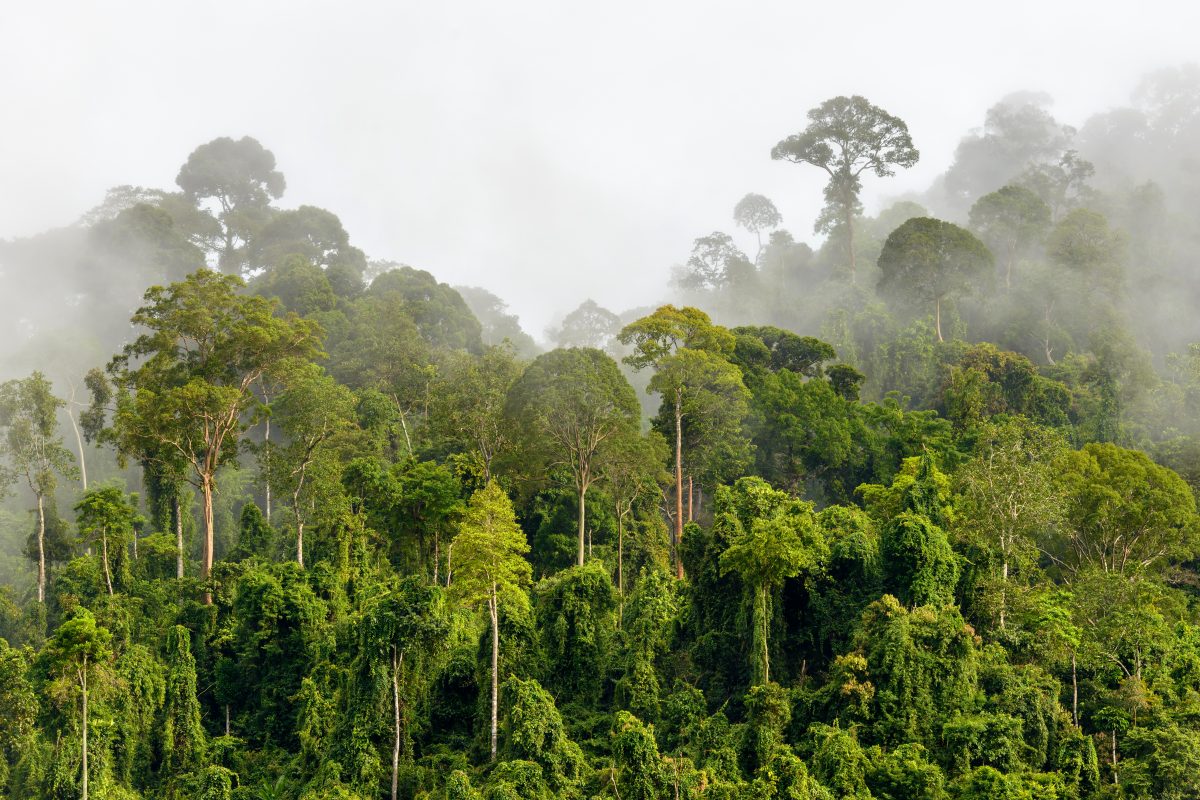


Sustainability Commitments
-
Sustainable Development
Myanmar SDGs (2018-2030)
Promoted Climate-resilient and reduce low carbon energy, GHG emissions and promote transport and industrial systems. Strengthen and enforce environmental safeguards and regulatory controls regarding natural resources-based industries.
-
National Forestry Plan
Monrec Target
The Ministry of Natural Resources and Environmental Conservation Plan a National Forestry Master Plan for the next 10 years, until the 2025-26 fiscal year, with the vision of creating a systematic management plan for the forestry sector to ensure sustainable logging.
-
Sector Policies
Environment Impact Assessment
Myanmar is formulating sector specific laws and policies across multiple sectors. In agriculture, government is formulating rubber production regulations; For energy and mining, ministry of environment is developing sector specific Environment Impact Assessment (EIA) and Environment Management Plan (EMP) guidelines.
-
NDCs
Myanmar’s Intended Nationally Determined Contribution
Myanmar is determined to play its role in the global effort and to crystallize this will into our INDC. Despite being a relatively low greenhouse gas (GHG) emitter and being a net GHG sink, Myanmar wishes to undertake a series of actions to demonstrate its commitment to climate change mitigation and highlight options for adaptation
-
Renewable energy
Myanmar SDGs PLAN (2018-2030)
Committed to increasing the use of renewable energy while providing electricity to the millions of people who still lack reliable access.
-
Green economy
Myanmar aims to follow a Green Economy development approach guided by Green Economy Policy and Investment Framework, which is developed by MoNREC in partnership with WWF. The framework builds on key government development plans including National Comprehensive Development Plan (NCDP), MCCA (Myanmar Climate Change Strategy and Action Plan) and INDC and will become a guiding document to make policy and investment decisions
- Sustainable Development
- Climate Change
- Investment framework
Success Stories of Myanmar
Success Stories of Myanmar
Success Stories of Myanmar
Success Stories of Myanmar
Success Stories of Myanmar
The team in Myanmar is already closly working together with the banking sector. So far, MOU have been signed with 3 Banks to provide capacity buidling and support the integration of ESG safeguards into their core banking operation system
Taking a collaborative approach with other institutions active and interested in sustainable finance in Myanmar, WWF is working with Sequa and the Myanmar Banks Association to promote Green Finance in the country
Currently, the missing transparency in Myanmar's banking sector does not allow an assessment of ESG integration based on publicly available data. Still, the team managed to assess the ESG integration of 4 banks based on bilateral interviews
The team reviewed and consulted for the Myanmar Economic Resilience and Recovery Plan (MERRP) to ensure that sustainability and green finance are incorporated into the Covid-19 recovery plans for the country
The planning and development of the Ayeyarwady River Landscape, with four sub-landscapes, has commenced with the sustainable finance team playing an integral role, including a focus to incorporate green finance and community based solutions
IKBI International Seminar: “Finance Sector Movement towards a Climate Resilient Economy”
Managing Climate Change and Forest Related Risks in Financing Activities
Workshop on land based sector financing guidelines
Challenges and Opportunities of Renewable Energy Development in the New Normal
KWAP Environmental Conference 2018
2018 Asian Bankers Association (ABA) Maybank Short Term Visiting Program
Responsible Banking Networking and Sharing Session
Sustainable Finance Roundtables: Global Perspectives on TCFD Implementation and Scenario Analysis
CIMB The Cooler Earth Sustainability Summit 2019
The Central Bank of Myanmar Sustainable Banking Seminar
CB BANK WORKSHOP ON ESG INTEGRATION
ABA-COFITT Sustainable Finance Workshop
Sustainable Finance Dialogue Forum
2nd Sustainable Finance Dialogue Forum
Sustainable Banking Workshop No.1/2019: Success stories and why it matters?
Sustainable Finance Roundtables: Global Perspectives on TCFD Implementation and Scenario Analysis
ABA-COFITT Sustainable Finance Workshop
Sustainable Finance Dialogue Forum
2nd Sustainable Finance Dialogue Forum
Sustainable Banking Workshop No.1/2019: Success stories and why it matters?
Sustainable Banking Workshop No.2/2019: Sustainable Infrastructure Financing
Sustainable Banking Workshop No.3/2019: Responsible Lending – Implementation Phase
IKBI International Seminar: “Finance Sector Movement towards a Climate Resilient Economy”
This seminar was held by IKBI together with the Indonesian Stock Exchange (IDX) and the National Bank Association (Perbanas).
First Panel: Panelists from OJK and United Nations Environment Program Finance Initiative (UNEP FI), moderated by representative from Bank Syariah Mandiri
Discussion on the regulator’s effort to mitigate climate risk and to create an enabling environment for climate action.
Second Panel: Panelists from HSBC, Standard Chartered, and BNP Paribas, moderated by representative from WWF Indonesia.
Discussion on the crucial role of top management’s commitment for the implementation of sustainable finance.
Managing Climate Change and Forest Related Risks in Financing Activities
The Carbon Disclosure Project and the Indonesia Sustainable Finance Initiative (IKBI) convened a workshop to share the potential benefits in managing and at the same time disclosing the climate change and forest related risks of financing activities. WWF Indonesia shared the associated risks for financial institution related to forest risk commodities and why the financial sector should engage and encourage their client to prevent opening concessions in forested areas (both primary and secondary) as well as peatland for their business activities.
Speakers:
• Morgan Gillespy, Global Director, Forests, CDP
• Christian Lonnqvist, Manager for Financial Services, CDP United Kingdom
• Joseph Power, Senior Analyst for Financial Services, CDP United Kingdom
• Rizkiasari Yudawinata ( Head of Sustainable Finance, WWF Indonesia
Workshop on land based sector financing guidelines
A one day field trip and a two day of scoping study group discussion on land based sector financing guidelines was taken place in Jambi, involving the Indonesia Financial Service Authority (OJK), WWF Indonesia and PT Sarana Multi Infrastruktur (PT SMI) – a state owned infrastructure financing institution and sustainable infrastructure expert from University of Lampung.
The discussion was deemed essential given that agriculture, forestry and other land use change ( is the country’s largest GHG emissions resources. The discussion aimed at identifying the shared ESG risks across AFOLU sectors, the natural capital that the sector rely on and how the financial sector
could better understand to help their AFOLU clients to effectively curb the GHG emissions.
Challenges and Opportunities of Renewable Energy Development in the New Normal
IKBI Webinar:
Notable speakers are representatives from:
• Financial Services Authority (OJK)
• Ministry of Energy and Mineral Resources
• Brainware.id
• Joint Credit Mechanism (JCM)
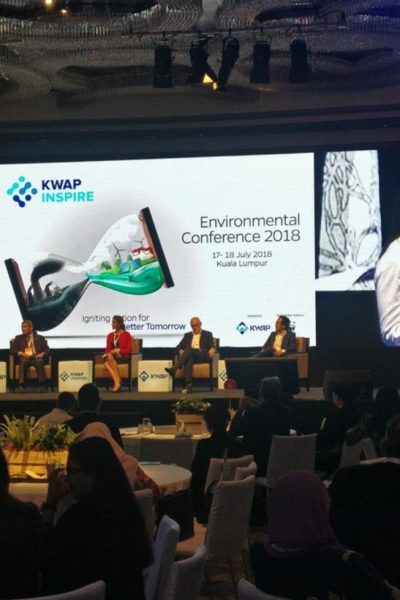
KWAP Environmental Conference 2018
Igniting Action for a better tomorrow
Panel: Feeding Asia
WWF Malaysia – Knowledge Partner
Panelists:
- Emily Kunen, Global Responsible Sourcing Leader, Palm oil & Seafood, Nestlé
- Audrey Cheung, Vice-President, Quality Systems and Supply Chain Management, McDonald’s China
- Noor Izlin Andrina Ismail, Manager, Social Performance – Sustainability and Quality, Sime Darby Plantations
- Dr. Keith Lee, Sustainable Finance, WWF Malaysia (moderator)

2018 Asian Bankers Association (ABA) Maybank Short Term Visiting Program
Kuala Lumpur – Malayan Banking Berhad (Maybank) successfully conducted the two-day ABA Short Term Visiting Program in its headquarters in Kuala Lumpur on October 18-19, 2018. The program, attended by 24 bank delegates from 13 different financial institutions in 8 countries, featured 7 banking subjects, presented by senior managers of Maybank.
Presentation: Global Drivers of ESG Integration (Dr Keith Lee, Sustainable Finance WWF Malaysia)

Responsible Banking Networking and Sharing Session
CIMB Group, one of 28 founding banks of the Principles for Responsible Banking, hosted a Malaysia Responsible Banking Engagement and Sharing Session in collaboration with the Association of Islamic Banking and Financial Institutions Malaysia (AIBIM) and the Association of Banks in Malaysia (ABM).
Mr. Rafe Haneef, CEO, CIMB Islamic Bank Bhd led the event participated by a total of 22 conventional and Islamic banks in Malaysia.
Presentation of the UNEP FI’s Principles for Responsible Banking and the resources that support banks in implementing the Principles were a central theme of the event. The active Q&A session showed high level of interest on sustainable finance among Malaysian banks.

Sustainable Finance Roundtables: Global Perspectives on TCFD Implementation and Scenario Analysis
Sustainable Finance Roundtables: Global Perspectives on TCFD Implementation and Scenario Analysis
1 April 2019 | Kuala Lumpur
Event Partners: WWF, RAM, IIC, CIMB

CIMB The Cooler Earth Sustainability Summit 2019
Population and urbanisation continue to rise, and with that, production and consumption are ever increasing. Businesses are growing, but under pressure to produce more and better quality at lower prices. Industrial and human activities continue to contribute to global heating and unprecedented environmental degradation. Human rights, health and productivity are compromised. Many parts of the civilised world are at risk of sinking beneath the waves in the next decade or two. Nature, wildlife and biodiversity – life itself – are threatened. There is no longer any doubt that humanity is at risk.
All these, coupled with governance, political and socioeconomic factors are prompting businesses, customers, investors, employees, governments and the rakyat to positively contribute to improving environmental and social wellbeing, towards creating a better future. Rapid technological changes are forcing leaders to reinvent their business models and future-proof. In short, business as usual is no longer an option.
As the world around us changes, financiers, investors and businesses have a responsibility to change their ways and manage economic, environmental and social risks, with long-term strategies to create net positive impact, while also remaining relevant and profitable.
- WWF Malaysia – Knowledge Partner
- Keynote Speaker: Maureen DeRooij (CEO WWF Singapore) – A Critical Connection: Why Can’t We Separate Nature from the Economy?
- Panel:
Sustainable Finance – What are the Regulators’ Expectations and Financial
Sector Initiatives Towards Advancing Sustainable Finance?
- Tengku Zafrul Aziz, Group CEO, CIMB Group
- Dr. Hamim Syahrum Ahmad Mokhtar, Deputy Director, Islamic Banking and Takaful Department, Bank Negara Malaysia
- Yuki Yasui, Asia Pacific Region Co-ordination Manager, UNEP FI
- Pierre Rousseau, Strategic Advisor for Sustainable Business, BNP Paribas Bank
- Jeanne Stampe, Head of Asia Sustainable Finance, WWF (moderator)
- Parallel breakout session: Masterclass | Sustainability Tools & Resources for Environmental and Social Risk Management (Lavanya Rama Iyer, Head of Policy WWF Malaysia and Norizan Mazlan, Head of Conservation Peninsula Malaysia WWF Malaysia)
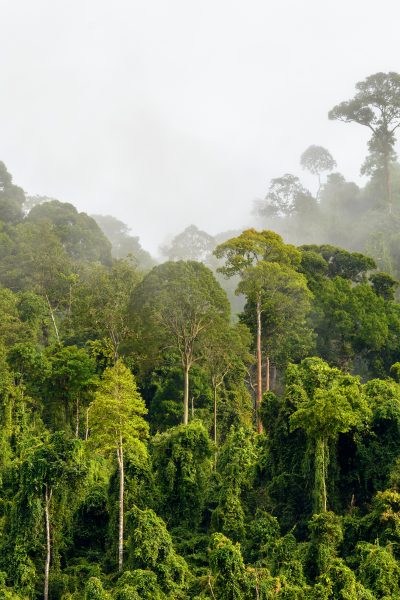
The Central Bank of Myanmar Sustainable Banking Seminar
Departments of Central Bank
Objective: Understand the relevance of sustainable finance to Myanmar local context and how sustainable banking will contribute to Myanmar’s sustainable growth
Get insights into ASEAN sustainable finance discussion and how banks are mainstreaming sustainable finance
Develop a strategy to on-board Myanmar Banking sector on successful sustainable finance journey in collaboration with partners

CB BANK WORKSHOP ON ESG INTEGRATION
Objective: Sustainable Development, Investor Relations, Product Management, Relationship Management, and related functions), Credit policy, Enterprise Risk Management team, Treasury, Asset Management team and other staff involved in integrating ESG practices in banks’ operating models and in defining the strategies, policies and procedures

ABA-COFITT Sustainable Finance Workshop
Managing ESG-Related Risks, Capturing Sustainable Finance Opportunities
Thursday, 25 April 2019
Summary: Globally, financial institutions and regulators recognise that environmental and social issues are material for the financial sector. To meet growing investor, consumer, civil society and regulator expectations and ensure the resilience of lending portfolios, banks in Southeast Asia and globally, have progressed with integrating Environmental, Social and Governance factors in their businesses (ESG integration).
This workshop provided participants with a perspective on why environment and social issues are material for banks in Myanmar and how to start addressing ESG risks and capturing business opportunities arising from sustainable development.
ABA-COFITT Sustainable Finance Workshop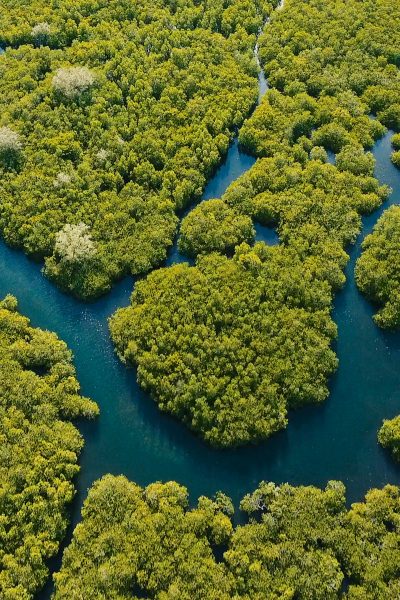
Sustainable Finance Dialogue Forum
30 April 2019 | Manila
Event Partners: WWF, Bankers Association of the Philippines, ADFIAP

2nd Sustainable Finance Dialogue Forum
9 October 2019 | Manila
Event Partners: WWF, Bankers Association of Philippines
- The Bankers Association of the Philippines (BAP) and World Wide Fund Philippines (WWF), Association of Development Finance Institutions in the Asia-Pacific (ADFIAP), and United Nations Economic and Social Commission for Asia and The Pacific (UNESCAP) organized the second national dialogue forum with the following objectives: to identify barriers and solutions to ESG integration; to recommend improvements in the BSP draft circular; to introduce the TCFD and methods on climate scenario analysis at the portfolio level.
- The event was keynoted by Mr. Gigi Montinola, WWF Chairperson.

Sustainable Banking Workshop No.1/2019: Success stories and why it matters?
- The bank of Thailand in collaboration with the Thai Bankers‘ Association and WWF organized the first sustainble banking workshop for 2019 focusing on the systemic issues and the importances of ESG as part of banking business.
- ESG is an essential piece to understanding how systemic issues like climate change and socio-political stability will impact financial returns. Understanding broader environmental and social context within which banks and companies operate, current trends, impacts and increasing expectation from investors will help banks effectively mitigate the risks and adapt to changes.
- Mr. Somchai Lertlarpwasin, the Senior Director of Financial Institutions Strategy Department, gave an opening speech at the event.

Sustainable Finance Roundtables: Global Perspectives on TCFD Implementation and Scenario Analysis
Sustainable Finance Roundtables: Global Perspectives on TCFD Implementation and Scenario Analysis
1 April 2019 | Kuala Lumpur
Event Partners: WWF, RAM, IIC, CIMB

ABA-COFITT Sustainable Finance Workshop
Managing ESG-Related Risks, Capturing Sustainable Finance Opportunities
Thursday, 25 April 2019
Summary: Globally, financial institutions and regulators recognise that environmental and social issues are material for the financial sector. To meet growing investor, consumer, civil society and regulator expectations and ensure the resilience of lending portfolios, banks in Southeast Asia and globally, have progressed with integrating Environmental, Social and Governance factors in their businesses (ESG integration).
This workshop provided participants with a perspective on why environment and social issues are material for banks in Myanmar and how to start addressing ESG risks and capturing business opportunities arising from sustainable development.
ABA-COFITT Sustainable Finance Workshop
Sustainable Finance Dialogue Forum
30 April 2019 | Manila
Event Partners: WWF, Bankers Association of the Philippines, ADFIAP

2nd Sustainable Finance Dialogue Forum
9 October 2019 | Manila
Event Partners: WWF, Bankers Association of Philippines
- The Bankers Association of the Philippines (BAP) and World Wide Fund Philippines (WWF), Association of Development Finance Institutions in the Asia-Pacific (ADFIAP), and United Nations Economic and Social Commission for Asia and The Pacific (UNESCAP) organized the second national dialogue forum with the following objectives: to identify barriers and solutions to ESG integration; to recommend improvements in the BSP draft circular; to introduce the TCFD and methods on climate scenario analysis at the portfolio level.
- The event was keynoted by Mr. Gigi Montinola, WWF Chairperson.

Sustainable Banking Workshop No.1/2019: Success stories and why it matters?
- The bank of Thailand in collaboration with the Thai Bankers‘ Association and WWF organized the first sustainble banking workshop for 2019 focusing on the systemic issues and the importances of ESG as part of banking business.
- ESG is an essential piece to understanding how systemic issues like climate change and socio-political stability will impact financial returns. Understanding broader environmental and social context within which banks and companies operate, current trends, impacts and increasing expectation from investors will help banks effectively mitigate the risks and adapt to changes.
- Mr. Somchai Lertlarpwasin, the Senior Director of Financial Institutions Strategy Department, gave an opening speech at the event.
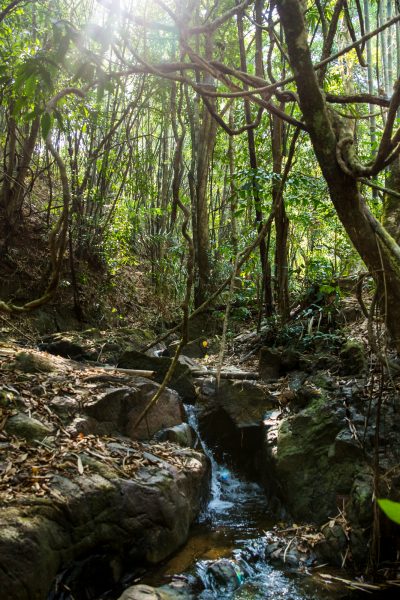
Sustainable Banking Workshop No.2/2019: Sustainable Infrastructure Financing
This second workshop highlights important aspects of sustainable infrastructure development in driving sustainable economy and shaping tomorrow’s communities in ways that do not diminish the functionality of natural systems. As UN SDGs recognizes infrastructure as one of the goals, it is necessary for the country to develop quality, reliable, sustainable and resilient infrastructure that supports economic development as well as the human well-being.
Mrs. Wajeetip Pongpech, the Assistant Governor, gave the opening speech at the event.
Sustainable Banking Workshop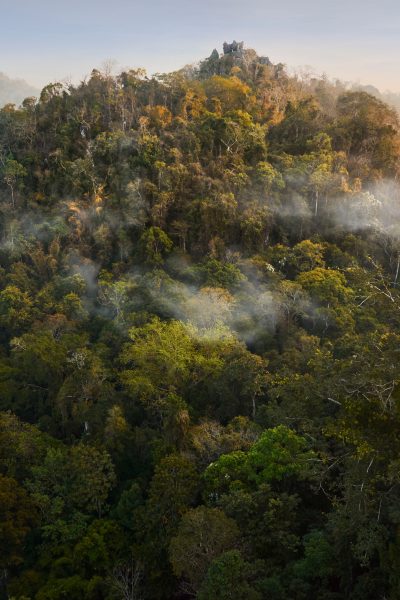
Sustainable Banking Workshop No.3/2019: Responsible Lending – Implementation Phase
This workshop provides guidance on how banks can take on developing their internal policies and processes that incorporate the elements in the guidelines. The discussions also put forward some examples that support the integration of ESG and sustainability principles into practices.
Mr. Vorapat Praneeprachachon, Assistant Director of Financial Institutions
Strategy Department gave the opening speech and Mrs. Nawaron Dejsuvan, the Assistant Governor of Financial Institutions
Policy Group gave the closing speech at the event.
Sustainable Banking Workshop